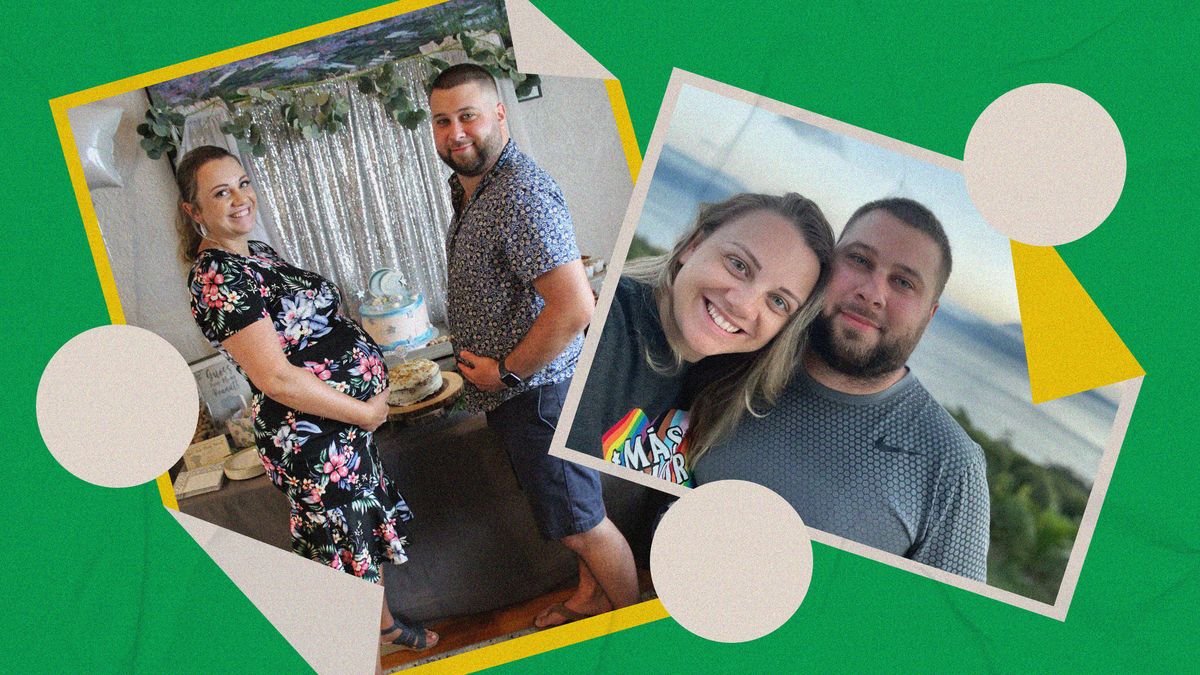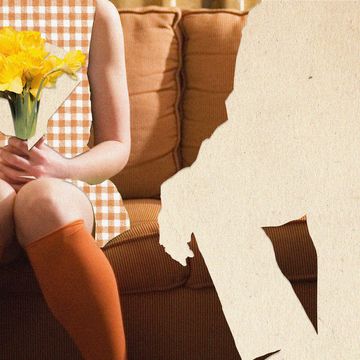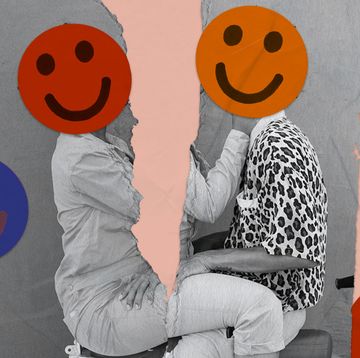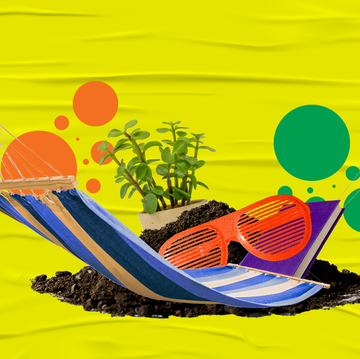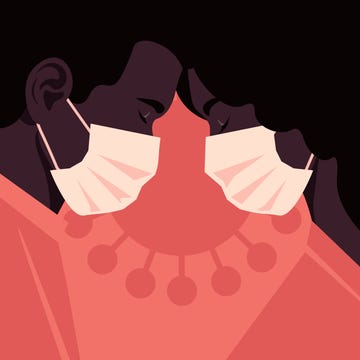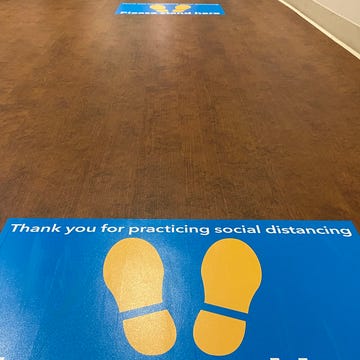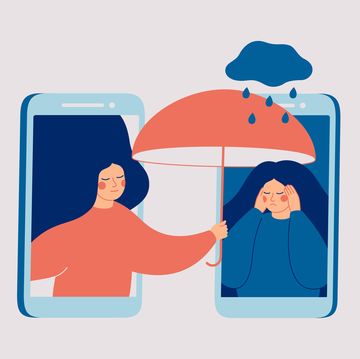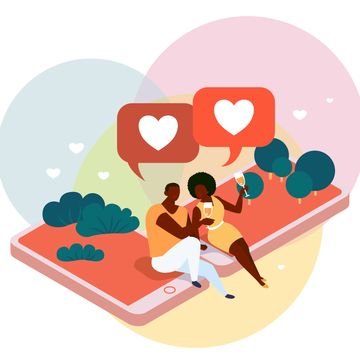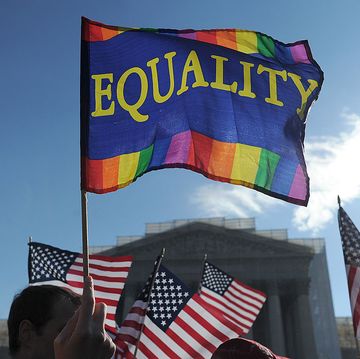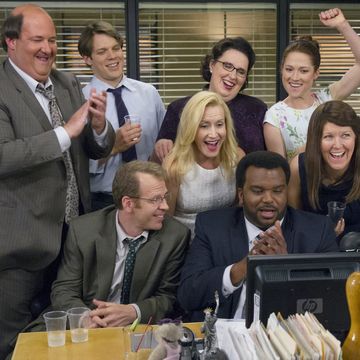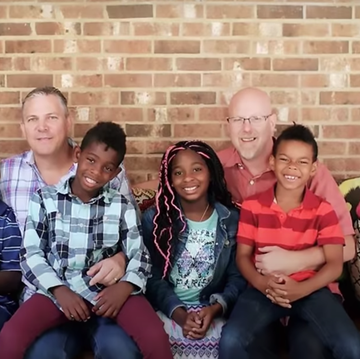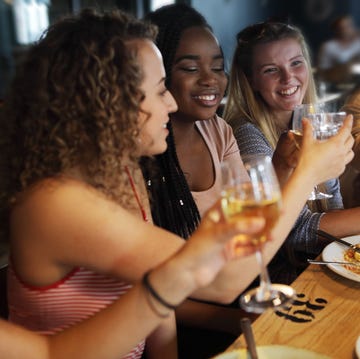When I got the courage to finally tell my husband I was harboring queer feelings, he shrugged it off. It wasn’t unusual for me to comment on the attractiveness of a woman or make claims about female celebrities I’d happily “go gay for.”
Years earlier, when I still lived with my widowed mother, I made a bucket list to hang on our fridge for all to see — an activity my therapist suggested might provide some “light at the end of the tunnel” so as not to be consumed by grief over my father’s death. I wrote ambitiously — get a master’s degree in creative writing and a subsequent PhD, climb Machu Picchu, and have sex with a woman. If these were supposed to be once-in-a-lifetime experiences, I wanted the full breadth of life-altering events.
But what started out as a funny bullet point friends and family members would point to on my mother’s fridge soon transformed into something more complex and thought-provoking. When my girlfriends and I gushed about our favorite self-pleasuring techniques and which toys to use, I revealed lesbian porn was my go-to for getting the job done. There was an eroticism in watching two women make love that straight porn could never replicate. My girlfriends assured me this wasn’t weird for me to admit as a straight woman and definitely not queer — two women making love was just more sensual, and perhaps that’s what I was attracted to.
But these attractions only grew. Sure, I was still very much interested in men. For eight years, I drooled over Richard Madden and Kit Harington, fantasizing about who would be the better medieval lover. In the classroom, when my high school students gossiped about the hot new teacher with the messy-sexy blond-brown hair, I coyly smiled and made a mental note to check him out. But when I jokingly-not-jokingly asked my husband only a month into our marriage if he’d be open to inviting another woman into our sex life, I knew these feelings of attraction toward women had become more than mere curiosities. My husband knew it too.
“If you ever cheat on me, I’m gone,” he said.
The conversation dropped.
It’s not uncommon for these types of confrontations around sexuality to occur in long-term relationships. There are many, myself included, who believe in the fluidity of gender and sexuality throughout a lifetime. But it’s difficult to claim such a change in orientation without any past “receipts” and while living within the confines of a monogamous, heterosexual relationship.
How could I come out as bisexual or queer if I had never been with a woman intimately, let alone kissed one? Would anyone take me seriously or simply laugh it off as a passing phase?
More than 80 percent of bisexuals end up in heterosexual relationships, which may be a result of internalized homophobia. But the thought of being with a woman publicly doesn’t scare me; it’s intriguing. I’ve often wondered what having sex with a woman would be like: Would I enjoy the feel of a woman as much as a man? But I’ve also wondered about the simple pleasures of having a true girlfriend; linking arms with her on a walk, not with the platonic love I feel for my female friends after a sangria-filled night out, but with true desire — the grazing of her soft skin against my own.
It seems easier to declare such a shift in your 20s, when your identity is still taking shape. It feels much harder as middle age looms and, with it, the societal expectations of building a traditional nuclear family.
Within one year of marriage, my husband and I bought a house and are now pregnant with our first child — a path we both willingly and fervently agreed on. Yet denying this burgeoning part of my sexual identity feels like a betrayal of that ideal nuclear family. Such an unveiling imposes a real threat to our relationships with family and friends and our sense of selves. If I come out as bisexual, will people assume I’m trapped in an unhappy marriage? Will my husband begin to question my attraction and/or commitment to him? And with the birth of my first child in a few short weeks, how will I make room for the role of mother if such an important part of my identity hasn’t been explored?
Like many times before, it was a conversation I had with my high school students that helped me see things differently. Years ago, the halls of our Metro Boston campus used to be riddled with derogatory insults, but now the LGBTQ+ community of students and staff has grown not just in numbers but in pride. These days, conversations in the classroom about sexuality and gender flow freely, with most students eager to ask questions and others just as eager to respond. I’ve never seen so many students proudly claim their sexual orientations amidst class discussions, unashamed and unfazed by their peers’ reactions.
“I think I might be bi,” one student said during one of our conversations.
“Yeah, same here. I’m just not sure,” another one replied. “Oh well, I’ll figure it out.”
Teenagers have the luxury of time to indeed figure things out, but they also have the opportunity of living in a time when such declarations of self are not questioned or shamed as harshly as they once were. Many of my students don’t have “receipts” of sexual experiences either. They simply have their hearts, minds, and bodies telling them who they are.
Why can’t the same be said for me? For all individuals who are beginning to feel the rhythm of a different beat within themselves?
I’ve since talked to my husband about questioning my sexuality, and in discussing each of our vulnerabilities and insecurities, he’s become my greatest supporter and ally. Perhaps, in the end, we’re not so much silenced by our partners or even society, but by ourselves. Perhaps our biggest downfall is not seeing ourselves as capable of change, even though we live in a world driven by it.
Sarah Chaves is a writer and educator based in Boston, Massachusetts. Follow her on Instagram and Twitter @sarita__chaves.
Get Shondaland directly in your inbox: SUBSCRIBE TODAY
